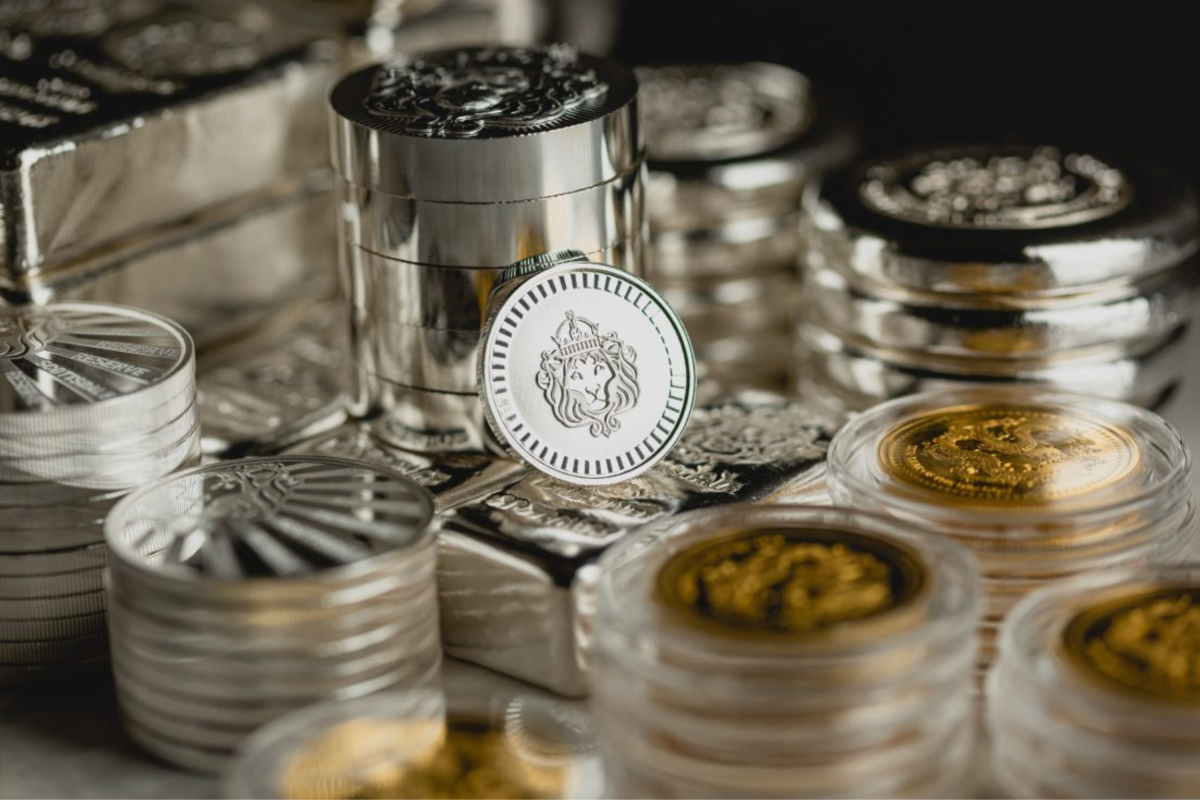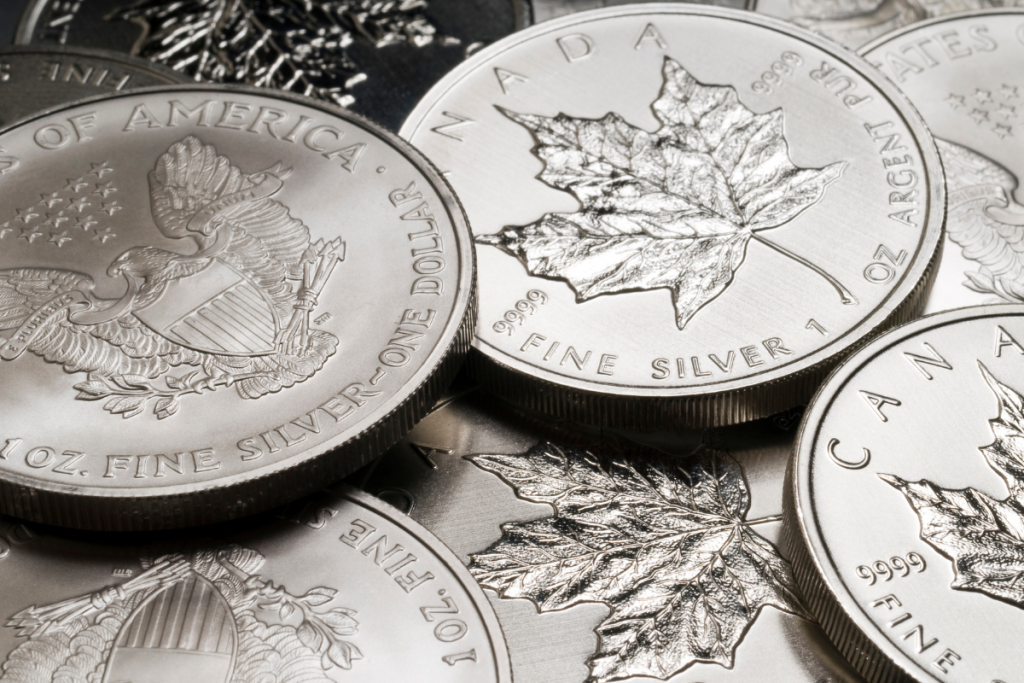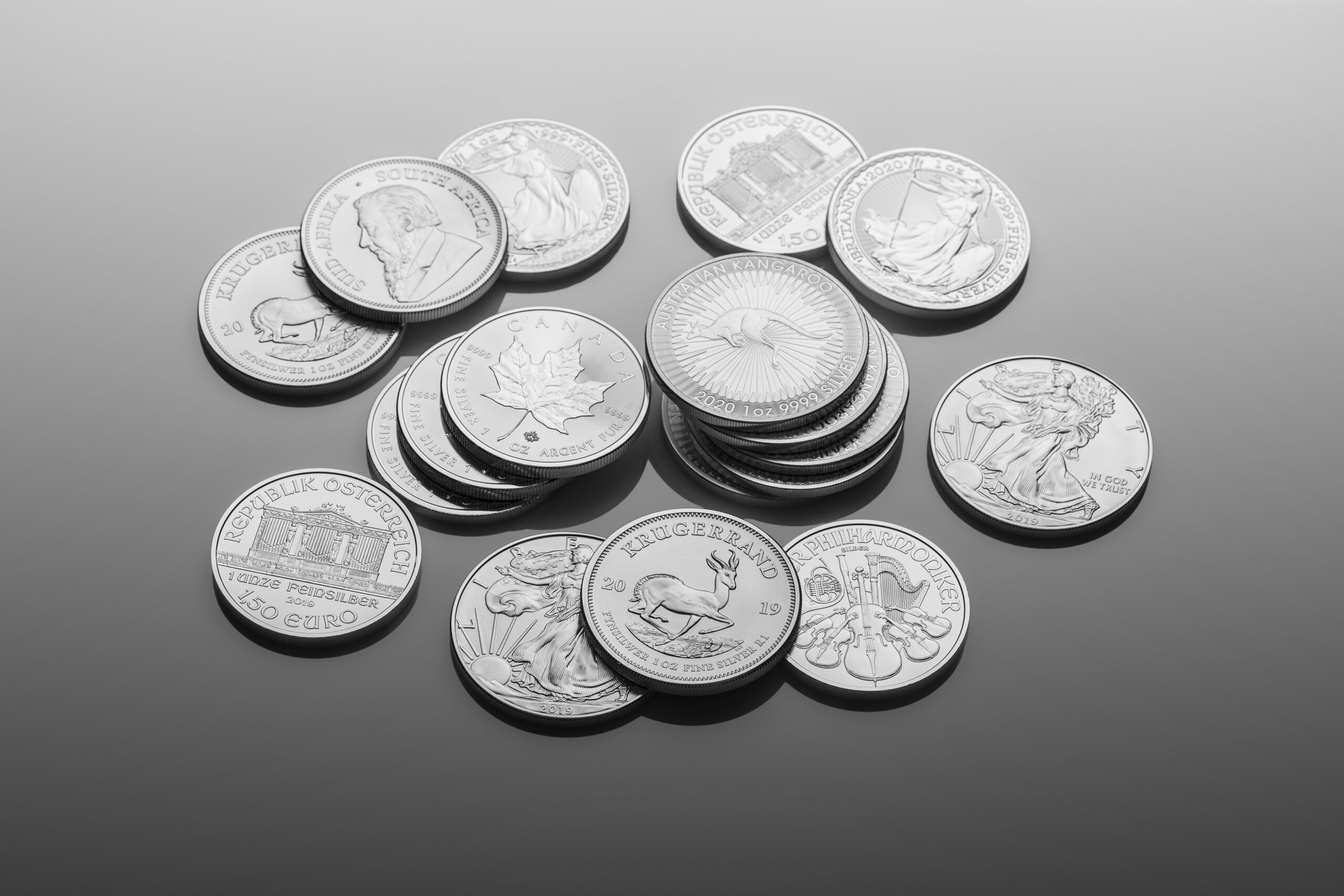- MetCon Silver Kilobar
Cleaning and Protecting Your Silver Coins

Table of contents
Silver coins have been a cherished choice for collectors for centuries, valued for their intrinsic worth and rich history. Over time, however, these coins can tarnish and lose their shine. This article explores the potential risks of cleaning silver coins and offers guidance on how to protect and care for them.
Silver Coins and Their Value
Silver coins boast a rich history, having served both as currency and collectable items. Crafted from silver and other metals, they are durable and hold enduring value. Silver coins come in various sizes, shapes, and designs, each with its unique story and significance.
The value of silver coins depends on factors like rarity, condition, and historical importance. Among the most sought-after are the Silver Kruger Coins from South Africa, minted during the 20th century. These coins are prized for their rarity and historical significance, making them a standout in the world of numismatics.
How to Determine if Your Coin is Silver
Identifying whether a coin is silver involves checking its composition for markings like ‘90% silver’ or ‘Ag.’ Compare the coin’s weight to known specifications, as silver coins are typically heavier. You can also conduct a magnet test (though not foolproof) and listen for a distinct ‘ring’ when tapped lightly. For precise results, seek expert opinion or use specialised coin-testing equipment. Reference books, mint marks, and historical research can further help in determining a coin’s silver content.

How to Properly Handle and Store Your Coins
- Clean Hands are Key: Always handle coins with clean, dry hands to avoid transferring oils or dirt. Using lint-free cotton gloves adds an extra layer of protection.
- Use a Soft Surface: To prevent accidental drops and scratches, work on a clean, soft surface like velvet or felt.
- Minimise Direct Contact: Handle coins by their edges to avoid touching the faces, which are most vulnerable to damage.
- Avoid Abrasive Cleaning: Only clean your coins if absolutely necessary. If cleaning is required, consult with numismatic experts or use non-abrasive, coin-specific materials and techniques.
- Safe Storage: Use high-quality coin holders or capsules that do not contain PVC, as PVC can cause chemical damage over time. For long-term storage, consider airtight containers or coin albums.
- Climate Control: Keep your coin collection in a stable environment. Avoid extreme temperatures, high humidity, and direct sunlight to prevent tarnishing and other forms of deterioration.
- Organise and Label: Maintain detailed records of your coin collection, including dates, mint marks, and historical information. Proper labelling and organisation make it easier to examine or display your coins.
- Insurance: Consider insuring your collection, especially if it holds significant monetary or sentimental value. Consult with an insurance provider experienced in numismatic coverage.
Should I Clean My Silver Coins? The Pros and Cons
The decision to clean silver coins involves weighing the pros and cons. Cleaning can restore shine and remove accumulated dirt, enhancing the coin’s appearance. However, it also poses risks such as surface damage, scratches, and loss of historical significance. Cleaning can remove natural patina, which is often valued by collectors and investors.
Why Cleaning Them Can Be Risky
Cleaning silver coins might seem like a good idea to restore their shine, but it can be risky. Aggressive cleaning methods or strong chemicals can damage these valuable pieces, diminishing their unique character and, in some cases, their historical significance.
Instead of cleaning coins yourself, consider seeking guidance from experts or using gentler cleaning techniques. This approach helps ensure that your treasured coins retain their charm, historical importance, and value.
How to Clean Silver Coins Safely and Effectively
If cleaning is necessary, use the ‘dip and rinse’ technique. Prepare a solution of warm distilled water with a few drops of mild dish soap. Submerge the coin briefly, usually no longer than a minute, to loosen dirt without abrasive action. Rinse the coin thoroughly under warm distilled water to remove loosened particles. Handle the coin by its edges and pat it dry with a lint-free, soft cloth or let it air dry on a clean, soft surface. Use this method sparingly, as excessive cleaning can affect the coin’s patina or appearance. Consult numismatic professionals if unsure about cleaning a specific coin.
Tips for Protecting Your Silver Coins
To protect your silver coins, handle and store them properly. Use clean gloves and store them in a cool, dry place away from direct sunlight or humidity. Avoid cleaning unless absolutely necessary, as it can damage the coin’s surface and reduce its value.

Silver Bullion Coins
American Silver Eagle, Canadian Silver Maple Leaf, Australian Kookaburra
Key Takeaway
Silver coins are valuable collectables that require careful maintenance. Cleaning can be risky and should only be done when absolutely necessary. Proper handling and storage help preserve their beauty and value for future generations. Consult with coin experts if uncertain about the value or historical significance of your silver coins.
 1st Floor,
Willowbridge Centre,
Carl Cronje Drive,
Tyger Valley
1st Floor,
Willowbridge Centre,
Carl Cronje Drive,
Tyger Valley



